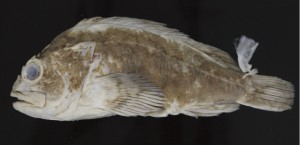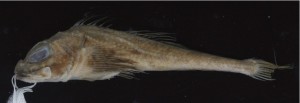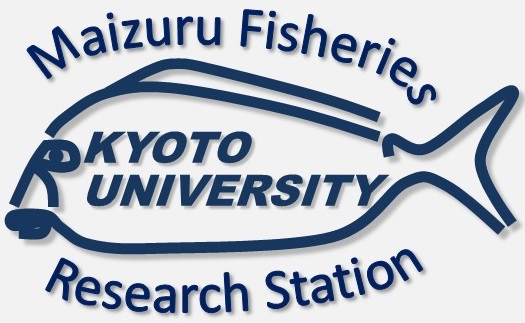2. FAKU Fish Collection
Fish collection

Holotype of Sebastes nudus
The fish collection of Kyoto University (FAKU) has been housed in the Kyoto University Museum (Sakyo, Kyoto) and in Maizuru Fisheries Research Station, Field Science Education and Research Center (Maizuru, Kyoto). Today, the FAKU fish collection houses more than 300,000 specimens (more than 3,000 species), including ca. 200 type specimens. The origin of FAKU can be traced back to 1947, when Professor Kiyomatsu Matsubara (1907~1968) posted to the Faculty of Agriculuture, Kyoto University (FAKU). Now, the collection is managed by Yoshiaki KAI (mebaru@kais.kyoto-u.ac.jp) at Field Science Education and Research Center (Maizuru, Kyoto). Generally, FAKU 60000~100000, and 200000 specimens are housed in the Kyoto University Museum, and the other specimens are in Maizuru Fisheries Research Station, Field Science Education and Research Center.

Paratype of Ricuzenius toyamensis
The collection of Maizuru Fisheries Research Station is covering most of the species from Japan (both marine and fresh water species). We also hold specimens from all over the world, especially from the Bering Sea, Australia, Northwest of Africa, Chile and Patagonia. Tissue samples for DNA analysis also available for ca. 1000 species, 5000 lots. The collection continues to grow as specimens are added.
Learn more about FAKU Fish Collection: Kyoto University Research Activities 5 (1), PDF, 1.2M
Arranging a visit
To arrange a visit to the fish collection of Kyoto University, please contact Yoshiaki KAI (mebaru@kais.kyoto-u.ac.jp) well in advance of your anticipated arrival. The domitory in the Research Station is available for qualified scientists and graduate students with stated research objectives.
Requesting loans
Loan requests should be directed to the collection manager, Yoshiaki KAI (mebaru@kais.kyoto-u.ac.jp). Loans are made only for non-profit scientific research. Please state exactly what material you are interested in, preferably by catalog number. We loan wet specimens and provide tissue samples for DNA analysis. No dissections, clearing and staining, or tissue sampling should be done without prior permission. Loans to students must be made to their advisors who must assume responsibility for the materials.
All DNA sequences generated from FAKU specimens must be deposited in DDBJ/EMBL/Genbank and registration numbers supplied to the Fish Collection of Kyoto University. All publications using FAKU specimens (and tissues) are required to be lodged with the Fish Collection of Kyoto University.
